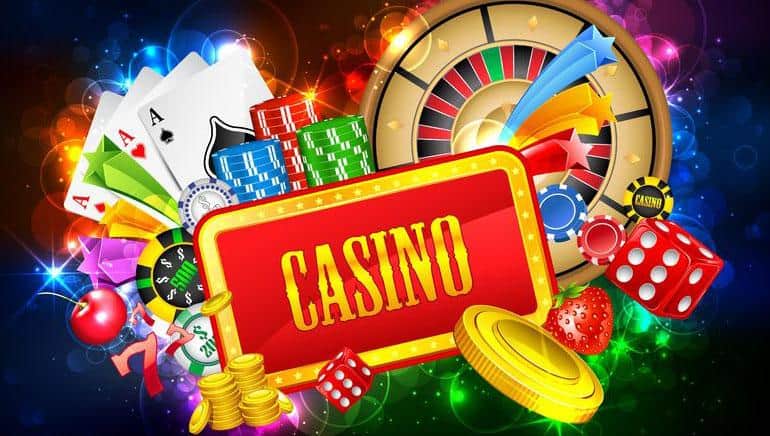The Mystery of Gambling Game Superstitions

In the world of gambling, where chance and strategy meet, a unique tapestry of beliefs unfolds—one that braids luck, fate, and the enigmatic nature of casino games. Casinos, bustling with excitement and anticipation, are not just venues for placing bets; they are also arenas in which superstitions thrive. Ranging from the novice player to the seasoned gambler, these mysterious practices often shape how individuals approach the games they play, believing that their actions can impact the outcome in ways that go beyond mere probability.
When players gather around roulette wheels, blackjack tables, and slot machines, the atmosphere is thick with stories of lucky charms, rituals, and codified behavior that defy logic yet provide a sense of comfort. It could be the case that it’s wearing a specific outfit, following a particular sequence of bets, or even avoiding certain numbers, the attachment to various superstitions reflects a deep-rooted desire to control the uncontrollable. This article delves into the captivating world of casino game superstitions, examining the beliefs that both entertain and mystify those who dare to play.
Historical Origins of Superstitions
Gambling games have long been interwoven with an array of superstitions that go back to primitive societies. The roots of these notions can be associated to humanity’s intrinsic need to influence the uncertain outcomes connected with fortune and chance. In primitive civilizations, activities of chance were often linked to spiritual practices. Gamblers would invoke aid or ask for favor from deities, believing that their actions could change the odds in their advantage. This groundwork laid the foundation for the myriad of superstitions that developed as casino games evolved over time.
During the medieval period, gambling became a widespread activity across the continent, and with it, a colorful tapestry of superstitions developed. Players adopted different rituals and charms, believing they could influence the consequences of games. The significance of digits, in particular, began to manifest in superstitions related to card games and dice. The number seven was often considered auspicious, while different numbers carried bad connotations. These ideas mirrored the cultural contexts of the time, adapting as they transferred through generations and changed to different gaming environments.
As casinos developed in the 1600s, particularly in Italy and the French nation, the atmosphere surrounding betting became imbued in mystery. The growing accessibility of gambling games allowed for the expansion and growth of superstitions among players. Concepts like lucky charms, specific seating positions, and rituals gained importance, creating a distinct culture within betting houses. As these customs continued to thrive, they became essential to the essence of casino games, illustrating how the past and society shape the notions that influence how gamblers connect with chance.
Common Gambling Myths
Beliefs surrounding gambling activities are abundant and diverse, reflecting the hopes and anxieties of gamblers as they participate in random games. One of the most prevalent views is that certain numbers bring fortune or misfortune. For example, the number 7 is often seen as a lucky number, frequently sought after by gamblers looking for a positive outcome. Conversely, the digit thirteen is routinely considered cursed, leading many players to steer clear of it during their gaming sessions.
Another common belief relates to rituals that gamblers believe can affect their chances. Whether blowing gently on dice before a roll, using a specific gesture to place a wager, or even wearing specific items of attire, many individuals feel that these rituals can tilt luck in their favor. These rituals offer a feeling of power in an otherwise random environment, strengthening the idea that fortune can be created through personal beliefs and habits.
Finally, the ambiance and vibe of the gambling house itself adds to myths. FABET Many gamblers suggest that the presence of specific symbols, such as four-leaf clovers or lucky tokens, can enhance their chances of success. Additionally, gamblers might hold to the notion that winning streaks can be interrupted by mundane occurrences, such as a person walking past or a spill at the gaming surface. The shared environment in a casino can amplify these superstitions, creating a shared culture of myths that goes beyond single experiences.
Impact of Superstitions on Players
Superstitions play a important role in the psychology of casino players, often affecting their actions and choices. A lot of gamblers believe that luck can be manipulated through various rituals, such as donning a talisman, selecting specific colors, or avoiding certain numbers. This dependence on superstitions can create a feeling of authority in an environment that is intrinsically unpredictable. Players frequently feel more confident and involved when they believe that their actions could sway the result of a game in their advantage.
The impact of these superstitions extends beyond singular players, affecting the overall atmosphere within the casino. For example, a player who holds the belief in the luck of a particular slot machine might draw a gathering, as onlookers are intrigued by their apparent success. This collective belief can amplify excitement and create a dynamic environment, leading to an interesting experience even for those who may not necessarily be believers themselves. The buzz around specific games can lead to higher participation and extended playing sessions, supporting the casino’s vibrant social scene.
In some cases, superstitions can lead to negative effects for players. Relying too much on rituals can result in poor gambling decisions, as some may overlook basic strategies in favor of baseless beliefs. Additionally, the stress to perform rituals may heighten anxiety and tension, diminishing from the enjoyment of the experience. Ultimately, while superstitions can enhance the thrill of playing casino games, they can also lead to poor choices that overshadow the fun and amusement intended in the casino experience.